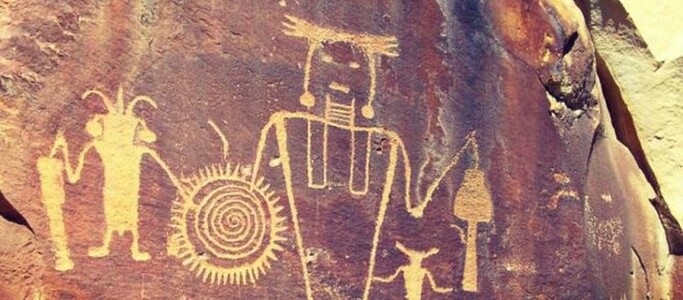When George Blitch sits down with a guest, he does not arrive with an agenda. He arrives with curiosity, preparation, and a question that changes everything: "What would you care to share?" This simple invitation, learned from his mentor Harvey Arden, transforms interviews into something rarer—authentic human connection that builds bridges between worlds.
Foundation in Sacred Work
Harvey Arden spent 23 years at National Geographic before dedicating himself to preserving Indigenous wisdom through the BridgeKeepers Project. When Arden met Blitch, a fifth-generation Texas rancher with an unusual combination of skills—financial advisor, wildlife manager, cartographer, musician, teacher, publisher—he recognized someone who could carry the work forward. "We are the BridgeKeepers!" Arden told him. "We have sacred work to do!"
That philosophy sparked a 9.5-hour conversation with Seneca Hawk Elder Edna Gordon, preserved for future generations without editorial lens or interpretation. The mission was clear: build bridges of understanding by letting voices speak for themselves. Blitch absorbed this approach completely. Years later, it would become the foundation of his podcast, Son of a Blitch.
The Renaissance Lens
Blitch brings a perspective few podcast hosts possess. He has guided hunters through Texas wilderness, managed investment portfolios, published books documenting Indigenous Elders, created maps for ranchers, coached high school soccer, and toured as a musician. This breadth allows him to find common ground with Navy SEAL snipers, James Beard-winning chefs, federal judges, and survival experts alike.
But breadth alone does not create connection. Depth does. Guests consistently praise his research. Hank Shaw, chef and author, noted that Blitch "comes ready with good, specific questions, listens to your answers and tests your depth with follow-up questions, probing, prodding and not settling for canned answers." Bestselling author Jack Carr observed that "George Blitch knows how to dig deep and keep the conversation real, making every minute count."
Kitchen Table to Cultural Impact
What began at a kitchen table has grown into 100+ episodes spanning three years. Jim Shockey, legendary outdoorsman, called Blitch "entertaining, knowledgeable and like Joe Rogan, he gets it." But the comparison misses something essential. Blitch operates with remarkably low ego. He centers guests, not himself. He invites rather than interrogates. He preserves rather than performs.
This creates safety. Guests reveal stories they have not shared elsewhere. Listeners describe the podcast as an "enjoyable, entertaining, and educated trifecta" with "unrivaled types of questions." Annual return guests speak to the trust Blitch builds. One guest simply said: "Thank you for what you do. It is truly touching."
Those wanting to experience this approach firsthand can explore the full catalog at youtube.com/@sonofablitch and SonofaBlitch.com, where over 100 episodes demonstrate the BridgeKeepers philosophy in action.
Legacy in Action
Blitch currently writes a book about Bob Lemmons, a man born into slavery in 1847 who became what J. Frank Dobie called "the most original mustanger that ever lived." While other cowboys broke horses through exhaustion and brutality, Lemmons lived with wild herds for weeks, becoming "one of them" until he could guide entire groups to corrals—calm, undamaged, valuable. By age 22, he had earned $1,000 and purchased a 1,200-acre ranch.
Bob Lemmons spent his final decade connected to the Blitch family ranch by a guide wire between houses. George's mother wrote her Master's thesis documenting Bob's life through family stories. Now George carries that work forward, connecting his family history to broader cultural narratives about resilience, innovation, and humanity.
Building Bridges Forward
The BridgeKeepers philosophy does not simply preserve the past. It creates conditions for understanding across divides that seem unbridgeable. When a fifth-generation Texas rancher can authentically connect with Indigenous Elders, Navy SEALs, musicians, and federal judges through genuine curiosity and careful listening, he demonstrates something powerful: our stories contain more common ground than our labels suggest.
George Blitch asks what you care to share. Then he listens. Then he follows where the conversation leads, prepared but unscripted, curious but informed, present but unobtrusive. This is how bridges are built—one authentic conversation at a time, preserved for those who need to hear that connection is possible.

